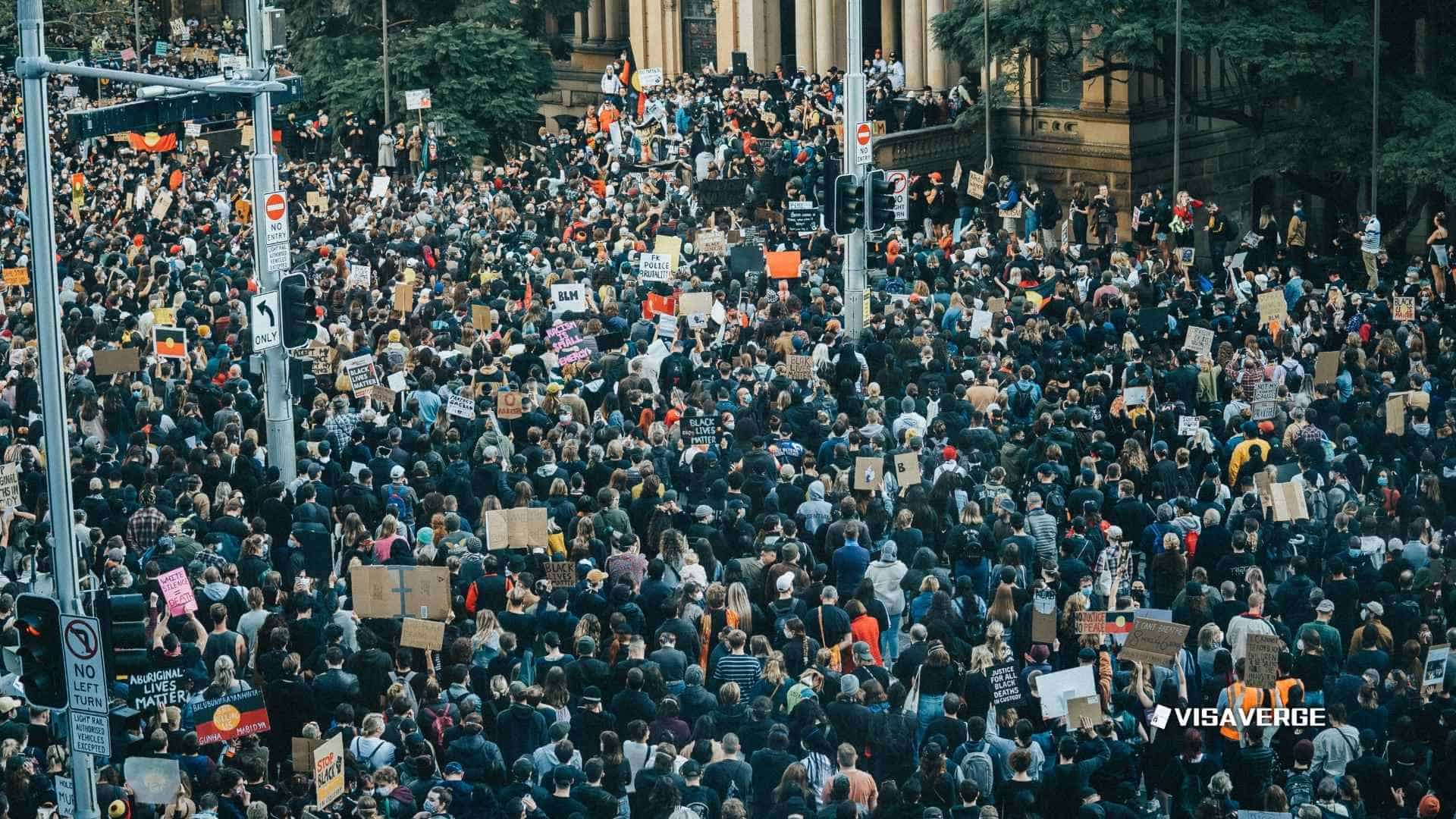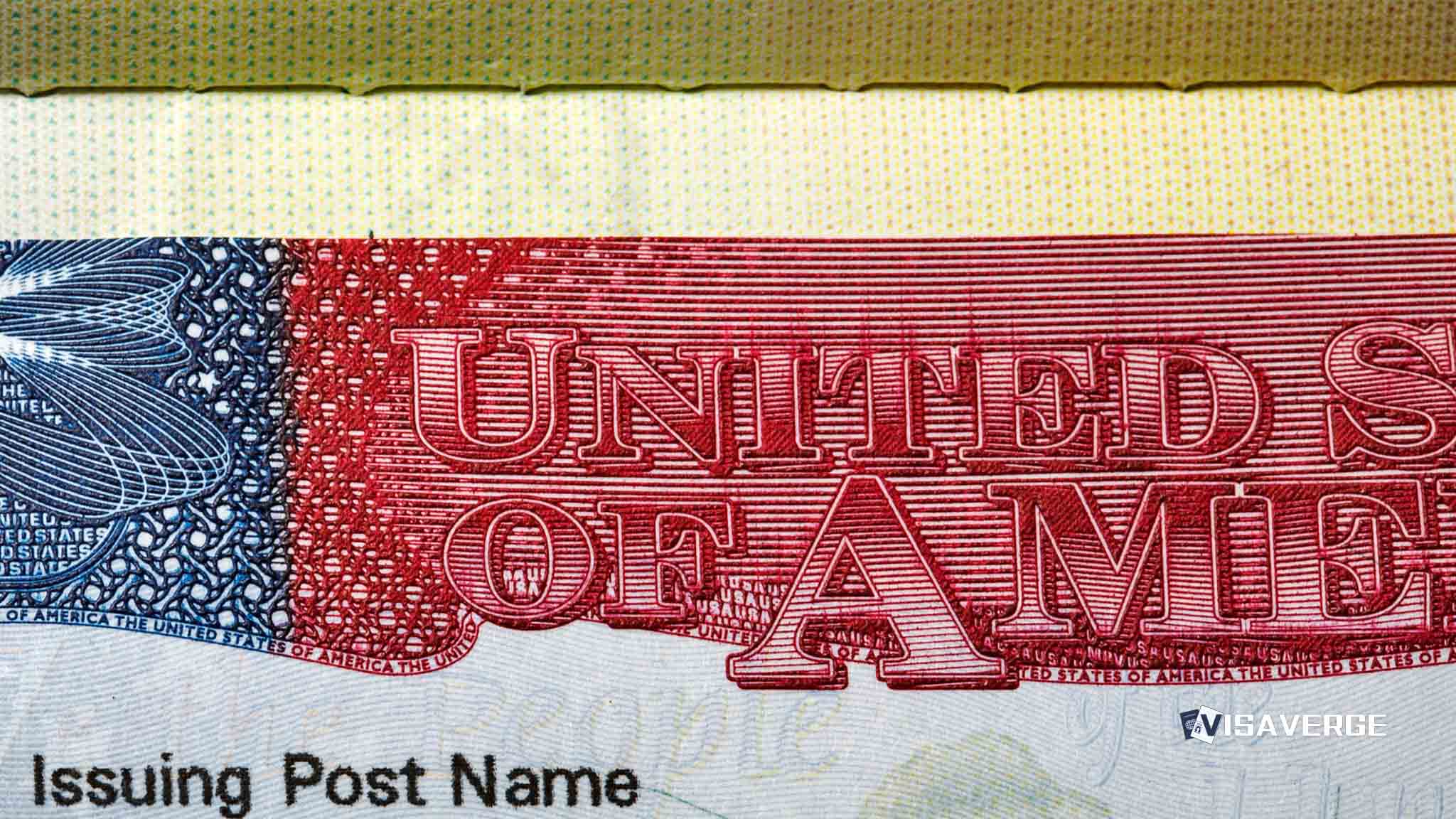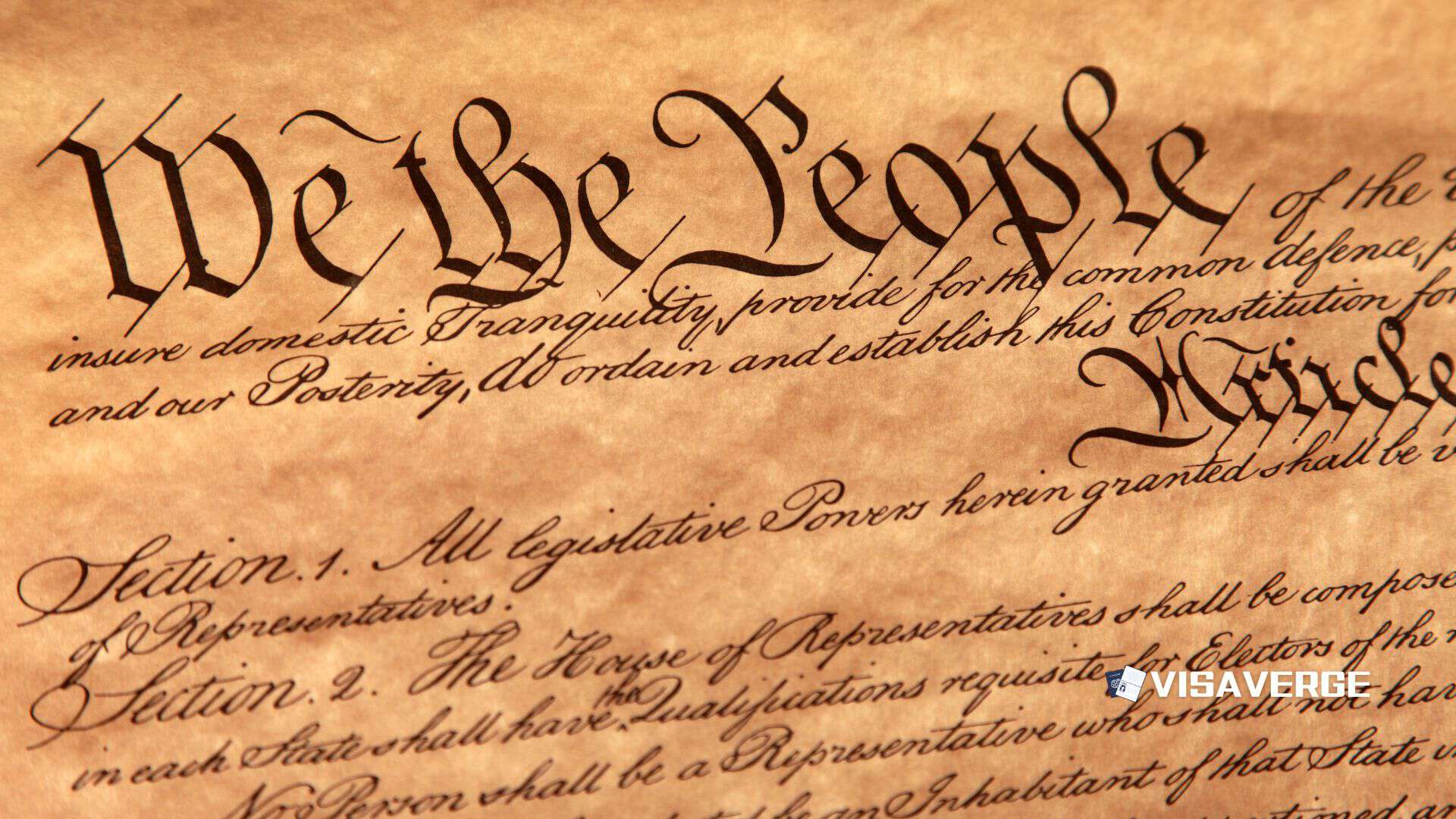(CAMARILLO, CALIFORNIA) A rising number of U.S. military veterans have been taken into custody and face federal charges after protests against recent ICE raids and the deployment of National Guard troops during 2025 immigration enforcement operations. The arrests span several cities, including Los Angeles and Chicago, and include high-profile detentions tied to the July 10, 2025 operation at Glass House Farms in Ventura County. Advocates say the pattern points to tougher tactics against protesters, including citizens who served in uniform.
Among the most prominent cases is George Retes Jr., a 25-year-old Army veteran and U.S. citizen, who was arrested by ICE during the July 10 raid at Glass House Farms in Camarillo. Retes says he identified himself as a citizen and veteran yet was forcibly detained, pepper-sprayed, and held for three days without charges or access to a lawyer. He alleges the arrest was unlawful and retaliatory, especially after he publicly described the incident.

According to analysis by VisaVerge.com, the case has become a touchstone for veteran groups who argue that federal agents crossed legal lines during crowded enforcement scenes.
Additional arrests and allegations
Another California arrest tied to the same operation involved Jonathan Caravello, a California State University professor and U.S. citizen. He was taken into custody after he allegedly threw a tear gas canister away from a protester using a wheelchair. Caravello was held without being informed of charges and later released on bond. Supporters say he acted to protect a vulnerable protester. Federal officials have not publicly detailed the basis for his arrest.
In Chicago, Dana Briggs, a 70-year-old Air Force veteran, was arrested outside the Broadview Detention Center during a demonstration. Video shows him on the ground, surrounded by federal agents, before he was led away. Veteran organizations and civil liberties groups have condemned Briggs’s arrest, calling it part of an alarming escalation in force against peaceful protesters, especially those with military service.
The Justice Department has confirmed that veterans are among those facing federal charges tied to these protests.
Scope of the enforcement operations
Authorities have conducted mass ICE raids in several regions this year, leading to hundreds of arrests — from undocumented immigrants to U.S. citizens at or near enforcement sites. Advocates tracking the demonstrations and detentions report that at least one protester died during the raids.
Federal courts have stepped in with rulings that:
- Halted indiscriminate immigration arrests without probable cause
- Declared the use of military forces for civilian law enforcement in California illegal
Supporters say those decisions draw important lines on constitutional rights during fast-moving operations.
Arrests linked to Glass House Farms and growing veteran backlash
The July 10 Camarillo raid at Glass House Farms, a large agricultural site, has become a focal point. Witnesses describe chaotic scenes as immigration agents moved in and clashes broke out on the edges of the operation. The veterans arrested say they were present to observe, document, or protect protesters they felt were at risk.
ICE has not released detailed public reports on each detention linked to that site, though the agency maintains enforcement actions target those with removal orders and those who pose public safety risks.
Veteran-led groups, including Common Defense and Illinois Vets for Change, have organized press conferences and rallies since mid-summer. Their demands include:
- An end to what they call harassment of peaceful protesters and immigrants
- Accountability for arrests they argue lacked probable cause
- Transparency on whether National Guard troops or other military resources were used during civilian enforcement
They emphasize that the arrests of veterans compound the harm, since many served in conflict zones and returned expecting the rights they defended to be respected in public spaces.
The Justice Department’s acknowledgment that veterans are among those charged underscores the reach of current cases. Outcomes vary:
- Some veterans had charges dropped or were released without clear charges after brief detention
- Others face open cases that may proceed to federal court
Defense lawyers argue charges tied to conduct such as moving tear gas canisters away from vulnerable people cannot stand under crowd-control policies and constitutional standards.
Legal rulings, civil suits, and constitutional issues
Recent court actions have:
- Blocked broad arrests without probable cause around enforcement sites
- Found the use of military forces for civilian law enforcement in California to be illegal
Legal scholars say these rulings, while not ending all operations, narrow the space for mass detentions that sweep in citizens who are lawfully present and participating in protests. Civil rights groups and some state officials argue the federal response has crossed constitutional lines and relied on tactics resembling military operations.
Veterans like Retes plan civil lawsuits against the federal government, alleging wrongful detention and civil-rights violations. Lawyers expect claims to focus on:
- Fourth Amendment protections against unreasonable seizures
- Due process violations for detentions without charges
- First Amendment issues tied to protest activity
If successful, these suits could set stronger limits on how federal agents conduct arrests near immigration operations.
Human impact and community responses
Accounts from families show the human cost: relatives losing contact during crowded enforcement scenes, days spent searching detention lists, and delays in access to counsel. Organizers report many citizens arrested at protest sites lacked prompt notice of alleged violations or quick legal representation.
Community recommendations for those near enforcement areas include:
- Avoiding protest zones near planned enforcement operations
- Keeping ID on hand
- Recording encounters when safe and lawful
- Forming buddy systems and identifying legal observers
- Establishing a check-in plan so families know who to contact if someone is detained
These practical steps aim to reduce confusion and speed access to legal help.
Federal response and policy outlook
Federal officials continue to defend the core mission of immigration enforcement. ICE’s Enforcement and Removal Operations unit describes its work and priorities on its official site, which outlines how agents identify, arrest, and remove people with deportation orders. Readers can review that overview here: ICE Enforcement and Removal Operations.
The agency states it focuses on public safety risks and those with final orders, though protesters and lawyers argue the 2025 scope went far beyond that.
Policy debates are likely to intensify as fall court calendars fill with suppression hearings and civil suits. Lawmakers at the state and local level face pressure to either:
- Adopt sanctuary-style limits on cooperation with federal authorities, or
- Expand community defense networks
Meanwhile, veteran organizations plan more events, tying their service records to calls for restraint and accountability during domestic operations.
Stakes and what to watch next
The rising tally of veterans arrested has become a political and moral flashpoint. Supporters of the protests argue it’s unacceptable to detain veterans who stepped in to shield others or to document force. Opponents counter that anyone interfering with lawful operations can face charges, regardless of background.
The next phase will hinge on evidence and legal processes:
- Video footage
- Arrest reports
- Medical records (for injuries like pepper spray exposure)
For now, the July 10 events at Glass House Farms — and the arrests of Retes, Caravello, and Briggs — anchor a larger fight over how far the government can go during ICE raids. With at least one protester dead, federal rulings chipping away at the broadest tactics, and veteran groups mobilizing, legal and public pressure is growing. Whether that leads to policy changes or further clashes will depend on court decisions and how agents operate during future enforcement.
This Article in a Nutshell
A series of arrests of U.S. military veterans at protests against 2025 ICE raids — notably the July 10 Glass House Farms operation in Camarillo — has sparked legal and political debate. Veterans including George Retes Jr., Jonathan Caravello and Dana Briggs report forcible detentions, limited access to counsel, and alleged retaliation. Federal courts have intervened to restrict indiscriminate arrests without probable cause and to prohibit military forces from civilian law enforcement in California. Veteran groups and civil-rights advocates demand transparency, accountability, and legal recourse; civil suits are planned challenging Fourth and First Amendment violations. The cases will test limits on enforcement tactics, with video, arrest reports and medical records likely shaping outcomes.













